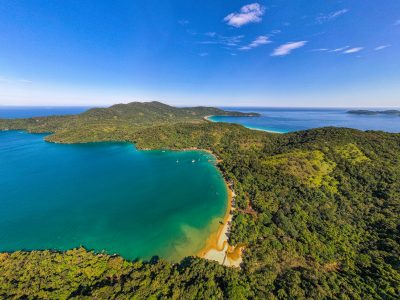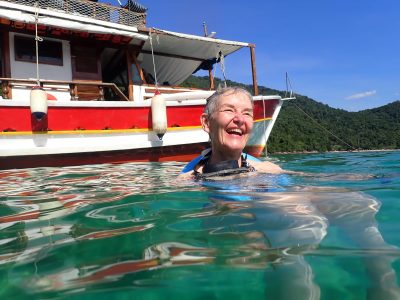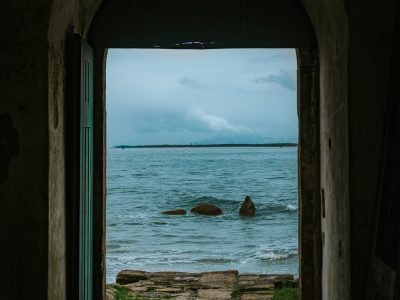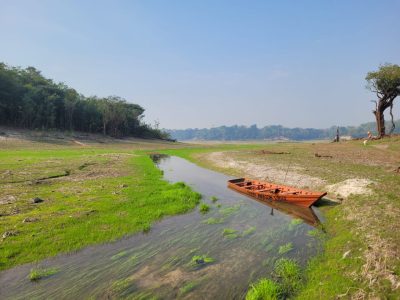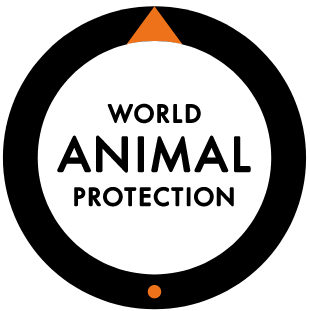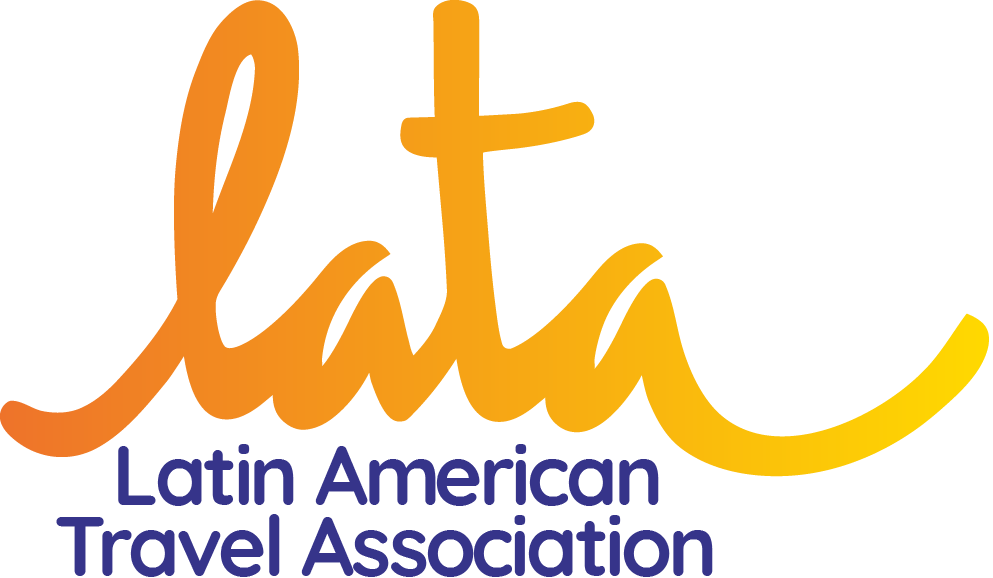Gondwana Brasil is about to implement a conscious travelers kit for groups visiting Brazil. Starting in August, initially in Rio de Janeiro, foreign tourists will receive an aluminum water bottle and stainless steel straws. This initiative aims to reduce the use of disposable plastics and encourage sustainable practices among visitors.
The kits are developed by our partner Ekoways Caminhos Regenerativos, a women-led and socio-environmental impact company that promotes collective well-being and nature conservation through specialized services in the tourism sector, focused on regenerative development.
“The business recognizes tourism as a cultural phenomenon, an educational tool, and a therapeutic instrument. Its purpose is to promote regenerative tourism in Brazil and co-create resilient communities and responsible practices,” says Amanda Selivon, founder of Ekoways.
Content Summary
Why Switch to More Sustainable Alternatives to Plastic?
More than 400 million tons of plastic are produced worldwide each year, and half of this plastic is designed to be used only once, according to data from the United Nations Environment Programme (UNEP). The United Nations (UN) reports that 13 million tons of this plastic end up in the oceans each year.
Plastic is extremely harmful to the environment due to its durability and resistance to decomposition. It takes approximately 450 years to decompose, and during this time, it breaks down into microplastics—small plastic particles up to 5 mm in diameter—that are easily ingested by marine life, causing harm to organisms and entering the food chain, eventually affecting human health.
UNEP also highlights that the effects of plastic waste are not limited to where it is discarded, as it can affect ecosystems thousands of kilometers away. Additionally, plastic production consumes large amounts of natural resources, including oil, and significantly contributes to greenhouse gas emissions. Improper disposal of plastics results in widespread pollution, harming terrestrial and aquatic ecosystems. The presence of plastics in natural environments can suffocate animals, destroy habitats, and release toxic substances, causing irreversible damage to biodiversity and ecosystem health.
According to data obtained by the World Wide Fund for Nature (WWF Brazil), Brazil is the 4th largest producer of plastic in the world but is one of the countries that recycles the least. The Brazilian Association of Public Cleaning and Waste Companies (ABRELPE) estimates that approximately 720 million disposable straws are consumed daily in Brazil, amounting to 1500 tons of waste every day.
Replacing plastic with more conscious alternatives is essential to reducing these impacts. Several alternatives to plastic are more sustainable and environmentally friendly, such as paper, cardboard, metal, glass, bamboo, among others. By adopting these alternatives, it is possible to significantly reduce plastic pollution, conserve natural resources, and promote a more sustainable and conscious lifestyle.
Have You Heard of Plastic Free July?
July is a significant month for raising awareness about plastic use, thanks to the campaign by the Plastic Free Foundation, which encourages millions of people to refuse single-use plastics. The foundation aims to end global plastic waste.
The Plastic Free July campaign inspires millions of people worldwide to avoid single-use plastics. In the last five years alone, more than 1.3 billion kg of single-use plastic have been avoided globally thanks to the campaign.
Taking advantage of the campaign month, we have joined forces with Ekoways to ensure that foreign travelers visiting Brazil in the second half of the year avoid using plastics. By receiving the conscious travelers kit, tourists can enjoy natural juices, caipirinhas, and local craft fairs without relying on plastic.
“For example, the straws are made with green stainless steel certification for not using mineral coal and have ISO in the production chain. The fabrics of the products are made of 100% natural cotton and are biodegradable. Additionally, we are concerned with reducing waste, implementing techniques to reduce and reuse production waste, and conducting regular inspections to ensure the quality of the final products and eco-friendly packaging, using recycled and recyclable materials for packaging, minimizing the use of plastic,” explains Amanda.
This initiative aligns with the UN’s Sustainable Development Goals (SDGs), specifically Goal 12, which seeks to ensure sustainable consumption and production patterns, and Goal 17, which aims to strengthen global partnerships for sustainable development. See here which other SDGs Gondwana Brasil aligns with.
Every action counts. By coming together to refuse single-use plastics, we can inspire others to do the same and contribute to reducing environmental impacts.

